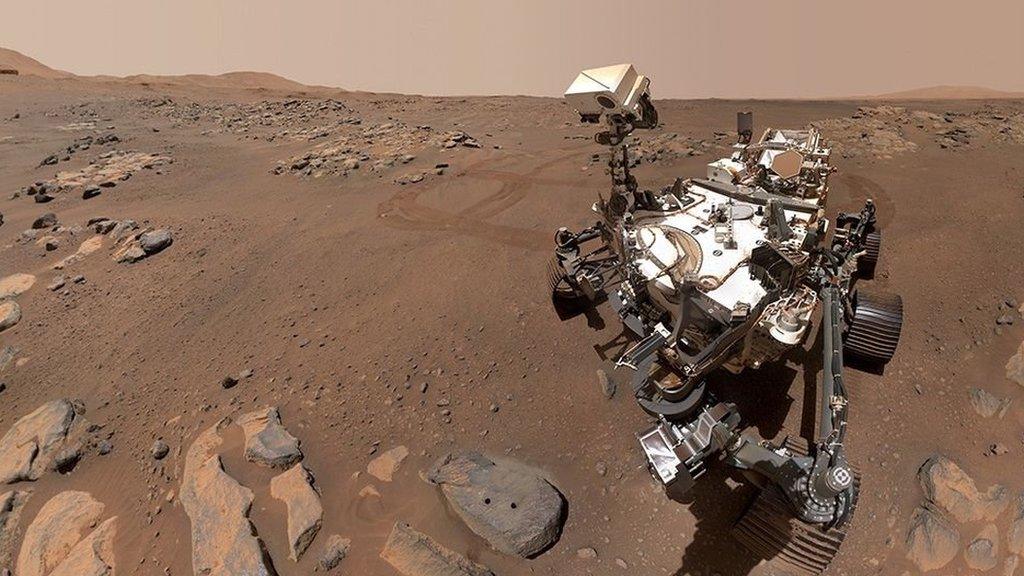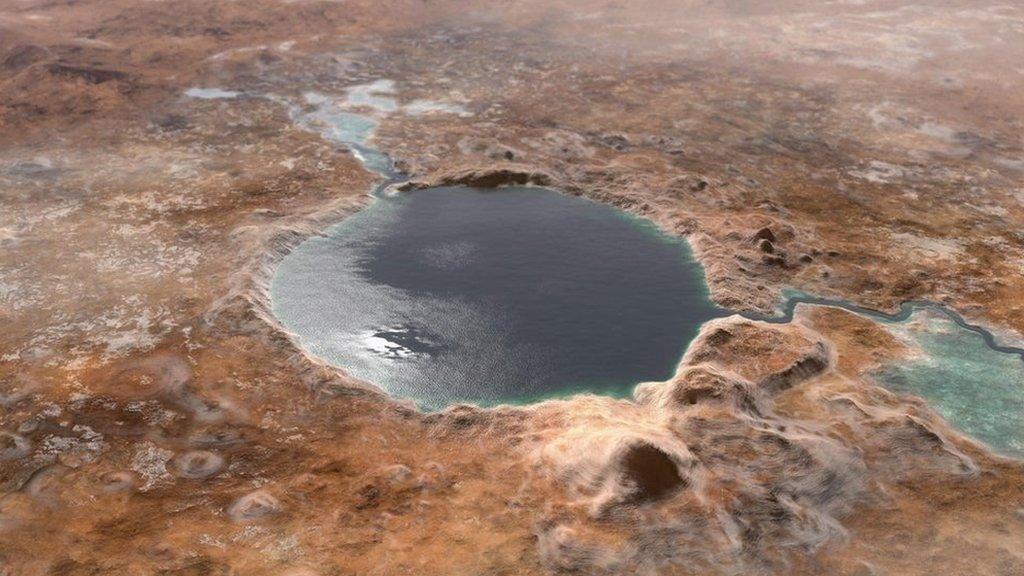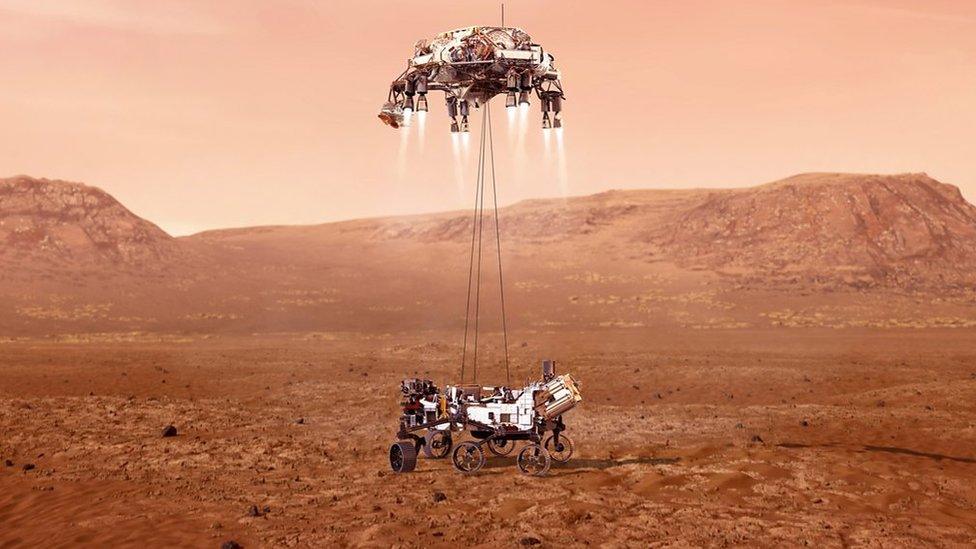Perseverance: Nasa's rover will begin the search for signs of life on Mars
- Published
- comments
Perseverance: Nasa's rover will begin the search for signs of life on Mars
It's a big day for Nasa's Perseverance rover.
The six-wheeled robot landed on the Red Planet over a year ago and it'll now start the search for signs of life.
The rover, which first landed in a deep crater near the planet's equator called Jezero in February 2021, will begin by exploring an area known as a delta.
A delta is a structure built up from sand and other materials dumped by a river as it enters a wider body of water. Scientists believe the wider body of water in this instance was most likely a crater-wide lake that existed billions of years ago.
So how exactly will the rover be searching for signs of life? The robot will roll uphill, stopping every now and again to examine rocks which look like they could contain evidence of past life on the planet.

Perseverance will drill rocks and store samples which will be returned to laboratories on Earth
"These are the rocks that we think likely have the highest potential for containing signs of ancient life and can also tell us about the climate of Mars and how this has evolved over time," deputy project scientist Dr Katie Stack Morgan told BBC News.
On its way back down, Perseverance will collect some of these rocks, placing the samples at the base of the delta where it will be collected by later missions.
The goal is to bring this material back to Earth in the 2030s for detailed inspection.

The rover will explore an area known as a delta
"The rover has an amazing suite of instruments that can tell us about the chemistry, mineralogy and structure of the delta, by examining the sediments all the way down to the scale of a grain of salt," said mission scientist Prof Briony Horgan from Purdue University, Indiana.
"We will learn about the chemistry of this ancient lake, whether its waters were acidic or neutral, whether it was a habitable environment and what kind of life it might have supported."
At this moment in time, whether life ever got started on Mar still remains a mystery. However, the rocks Perseverance collect could reveal the answer to this big question.
It's unlikely the robot itself will be able to make any clear conclusions about previous life on the Red Planet, as smart as its instruments are.

Scientists believe the Jezero crater was a lake on Mars billions of years ago
Instead, we'll have to wait for the rover's rock collection to be brought home for the type of rigorous testing needed to understand the facts of life on Mars.
"The claim that there is microscopic life on another planet in our Solar System is an enormous claim. And so the proof needs to be enormous as well," said Jennifer Trosper who is Nasa's Perseverance project manager.
"I don't think that the instruments we have by themselves can provide that level of proof. They can provide a level of 'we think this might be it', and then we bring the samples back to Earth and we use the more sophisticated larger instruments here to make sure," she told BBC News.
- Published23 February 2021

- Published8 June 2018

- Published6 March 2020

